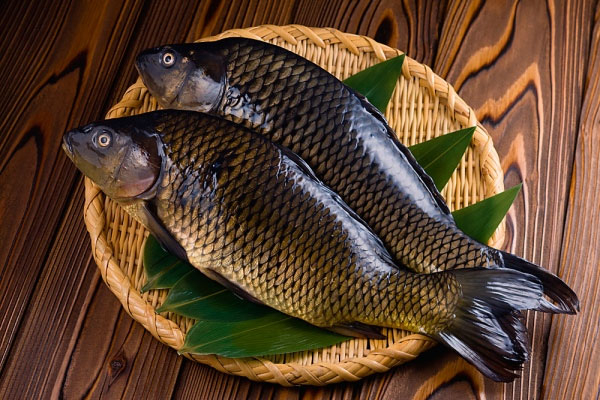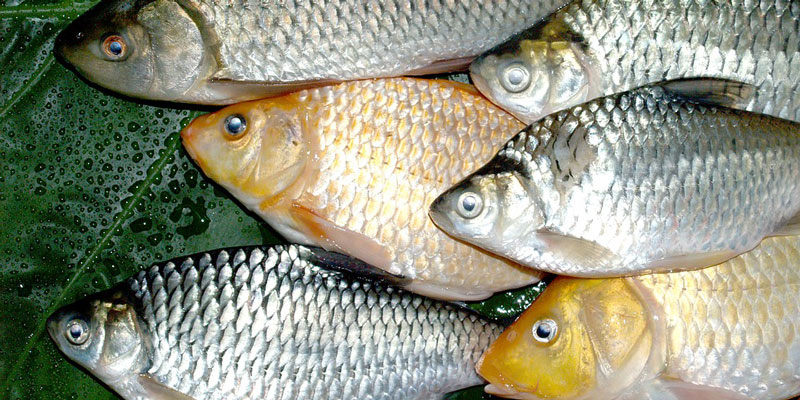Crucian Carp

The crucian carp (Carassius carassius) is a medium-sized carp in the Cyprinidae family. The crucian carp is a widespread European fish, with a range that extends from England to Russia. It lives in lakes, ponds, and slow-moving rivers. The crucian carp is a medium-sized cyprinid with an average length of 15 cm and a maximum weight of 3 kilos. They are described as having a "golden-green sparkling color" on their body, although a more specific source notes that immature fish are golden-bronze and darken with maturity.
The crucian carp meat is delicious and nutritious because it contains many nutrients such as protein 17.7 percent, fat 1.8 percent, and many minerals such as calcium 70mg percent, phosphorus 152mg percent, iron 0.8mg percent, and many vitamins of various types such as B1, nicotinic acid. Carp has the action of neutralizing damage, beneficial gas, diuretic... ideal for those who have been ill for a long time, the body is weak, thin and weak, blood gas, according to traditional medicine. Inadequacy leads to bad eating habits, heartburn, a bloated spleen, and difficulties urinating. Furthermore, crucian carp benefits milk, improves cardiovascular function, reduces blood viscosity, and promotes stable blood circulation.
People with liver and kidney problems, on the other hand, should avoid eating crucian carp because certain patients with stones must manage the level of uric acid in the urine because if there is, the body has too much acidification or acid excretion. Too much uric acid causes the phenomenon of uric acid combining to form stones, increasing the risk of kidney stones. As a result, if these patients desire to minimize the absorption of significant levels of purine, the simplest approach to do so is to avoid eating too much fish.
















